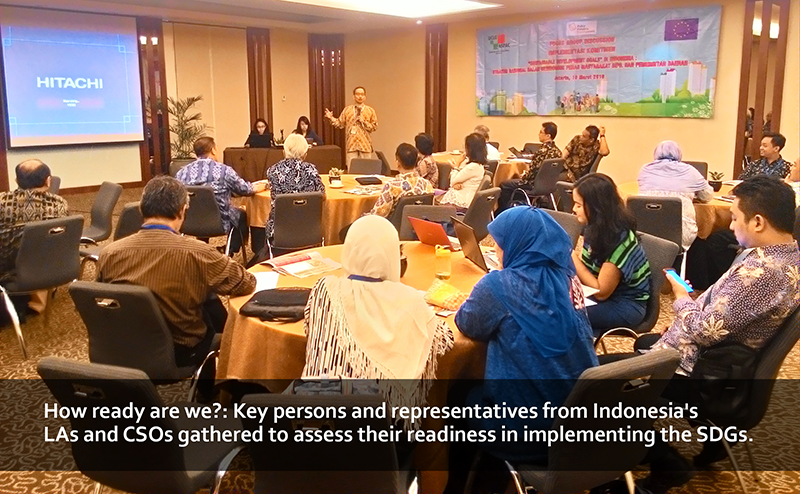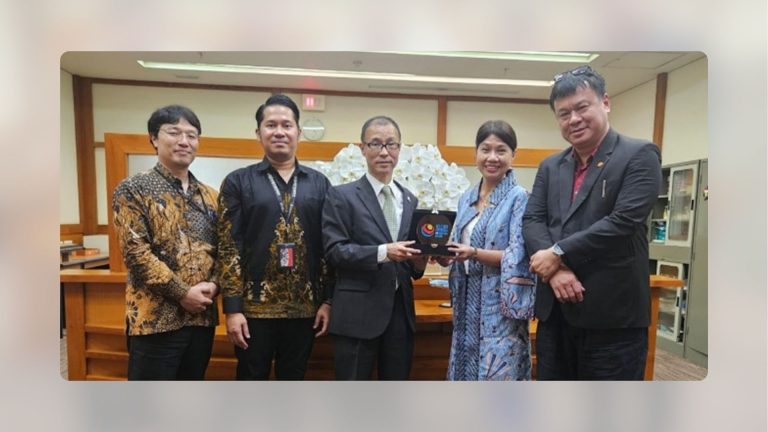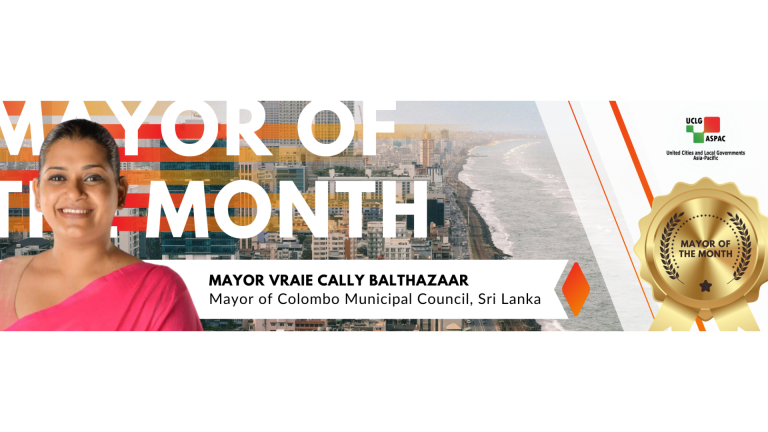THE adoption of the Sustainable Development Goals (SDGs) in September 2015 has raised a question of whether or not certain countries are ready in its implementation. Indonesia is not an exception. With decentralization putting local governments at the center of development planning, the success of SDGs’ implementation strongly depends on local authorities (LAs) and their collaborations with civil society organizations (CSOs) and other local actors.
Stemming from this rationale, there is a need to identify ways to improve the participation of local CSOs and LAs in the implementation of the SDGs. Recognizing this need, UCLG ASPAC and European Commission’s Policy Forum on Development (PFD) organized a Focus Group Discussion (FGD) on March 10th, 2016, bringing together key persons and representatives from Indonesia’s LAs and CSOs and relevant Ministries to assess their readiness in implementing the SDGs. The FGD served as a platform to gather valuable insights for the formulation of the Inception Report on Indonesia, a PFD-sponsored study led by Dr. Wicaksono Sarosa, an in-country expert on MDGs and local governance.
The FGD first tried to identify challenges faced by LAs and CSOs. One of them is the different databases used in integrating the SDGs into their programmes. In this context, participants agreed that Indonesia’s Central Bureau of Statistics should be involved to provide valid data to LAs for designing indicators for SDGs.
The second challenge is the fact that the SDGs are perceived as “exclusive issues” that belong only to certain groups or sectors, creating some kind of a “sectoral ego” among stakeholders. One of the examples is the perception that the goals are only under the responsibility of the Development Planning Agency at national and local levels. Therefore, there is an urgency to promote the SDGs among different stakeholders. Another interesting idea is to appoint a coordinator or a person in charge of SDGs at the local level with the main task of monitoring progress.
Still related to the second challenge, Oswar Muadzin Mungkasa, Jakarta’s Deputy Governor for Spatial Planning and Environment, said that the SDGs are often considered as the commitment of national government, yet its implementation is mostly done by local governments.
“This has created a missing link between the national and the local governments. Therefore, we first need to establish a commitment,” he said.
Therefore, there should be a Presidential Decree that stipulates a specific role of local governments in the implementation of SDGs. This could serve as a legal standing for the inclusion of SDGs in their Medium-Term Local Development Planning (RPJMD).
As the discussion continued, the participants identified the fourth challenge, which is the perception that the SDGS have too many indicators, creating a sense of burden among LAs. The truth, however, SDGS should not be seen as something new, as most of its indicators have been included in the RPJMD. The 17 Goals have actually been spread among priorities set by local governments. However, because they were “labeled” as SDGs, LAs feel that they face something new. Therefore, it is important to shift this perception.
The FGD also highlighted the importance of knowledge management, where local governments can learn from and share with each other best practices they used in implementing SDGs. A network comprising local governments and CSOs should therefore be enforced.
“Civil society organizations’ role is not to or fights against governments. Instead, they should work side by side with governments – both local and national — in implementing the SDGs. Most important is that CSOs and LGs should understand their own roles and responsibilities for effective implementation of SDGs,” said UCLG ASPAC Secretary General, Dr. Bernadia Irawati Tjandradewi.
Vice Mayor of Makassar, Dr. Syamsu Rizal, agreed, sharing a best practice of government-private collaboration in his city is necessary.
“Makassar has created a CSR (Corporate Social Responsibility) Forum, where we manage and distribute funds from BUMN (state-owned enterprises). So the enterprises do not need to hire professionals to manage their CSR activities,” the vice mayor added.











